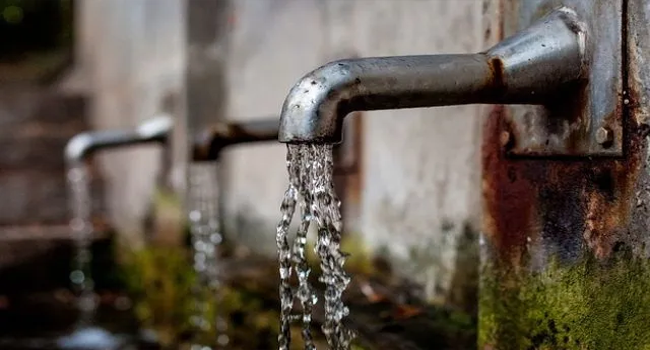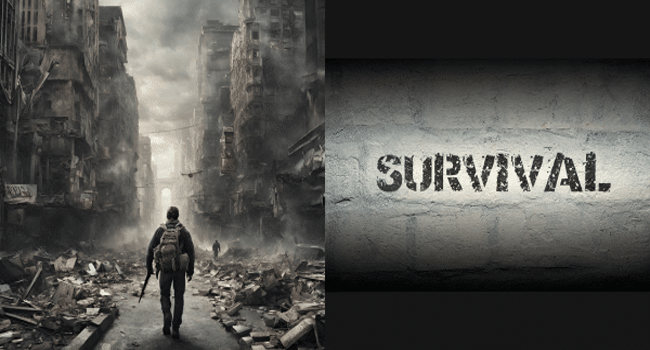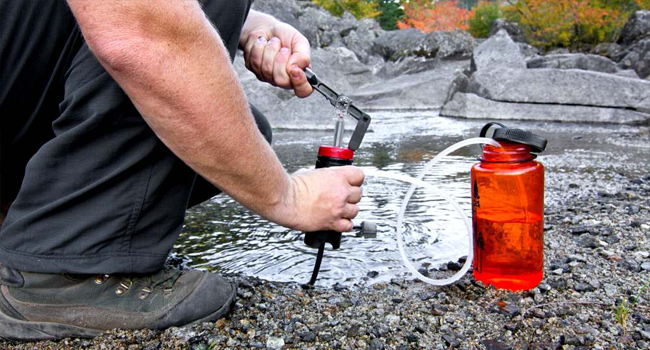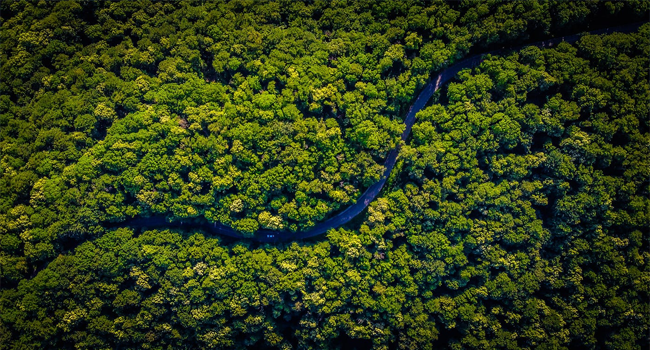
Introduction:
Water is frequently taken without consideration in the concrete jungles of urban landscapes. Could you turn on the faucet, and there it flows? In this manual, we will discover the demanding situations of urban water shortage and offer realistic answers to create your urban oasis.
Understanding Urban Water Challenges:
Cities depend upon complex water supply systems like reservoirs, pipelines, and treatment flowers. When these systems fail because of natural failures, infrastructure breakdowns, or different emergencies, getting the right of entry to clean water becomes a pressing subject. In a survival state of affairs, one ought to navigate the challenges posed by contaminated water sources, limited natural moisture in our bodies, and the ability for ailment outbreaks.
Finding Water Sources:
Rooftop Rainwater Harvesting:
Utilizing the often omitted aid of rainwater can be a lifesaver. Collecting rainwater from rooftops may be completed using easy gutter structures main to garage boxes. Ensure the packing containers are smooth and included to prevent infection.
Natural Water Bodies:
Urban regions may additionally have rivers, lakes, or ponds. However, those water assets are probably polluted. Boiling, filtering, or purifying water and using chemical capsules are critical steps to make it secure for consumption.
Condensation:
Condensation can be harnessed as a water source. Using makeshift structures, you can acquire water vapour from the air, especially at night, while temperatures drop. This technique requires patience but can provide consistent water delivery through the years.
Storing Water:
Containers:
Having appropriate boxes for the water garage is vital. Use food-grade plastic or steel bins with tight-sealing lids to prevent infection. Ensure you have a whole lot of sizes for smooth transportation and garage.
Purification Methods:
Treat accumulated water with purification techniques, boiling, using water purification tablets, or employing transportable water filters. Having a couple of purification alternatives increases your probability of getting secure consuming water.
Underground Storage:
Developing concealed underground storage may be a strategic circulate in an urban setting. This protects your water supply from theft and decreases the hazard of infection. Ensure the storage location is well-ventilated to prevent mould growth.
Conserving Water:
Water Recycling:
Implement a system for recycling water. For instance, water used for washing dishes or bathing can be filtered and reused for non-potable purposes like flushing toilets or watering plant life.
Low-go with the flow Fixtures:
Install low-glide taps and showerheads to reduce water consumption.
Greywater Management:
Separate greywater (wastewater from family sports apart from toilets) from blackwater.
Emergency Water Filtration:
DIY Filtration:
In a survival situation, improvisation is key. Create a makeshift filter out the usage of layers of material, sand, and charcoal to dispose of impurities from water. While no longer as powerful as industrial filters, it could make contaminated water more secure for consumption.
Solar Water Disinfection:
Leverage sunlight for water disinfection. Fill obvious containers and place them in direct sunlight for six hours. The ultraviolet rays will assist in killing harmful microorganisms, making drinking water safer.
Community Collaboration:
While character water conservation and harvesting efforts are critical, fostering a feel of network collaboration can beautify standard water resilience. Establishing community water committees or sharing sources can create a better guide system. Pooling knowledge, capabilities, and resources can assist in coping with collective water-demanding situations and ensure a sustainable and communal survival approach.
Education and Awareness:
In a city survival situation, information is strength. Educating yourself and others on water-associated abilities, inclusive of identifying secure water assets, water purification techniques, and green storage practices, is essential. Community awareness campaigns can unfold precious records, empowering citizens to take proactive measures.
Innovative Technologies:
The fast improvements in the era offer new opportunities for addressing urban water scarcity. Investigate solar-powered desalination devices, portable water purification gadgets, and progressive water storage solutions. Integrating period into your survival plan can provide efficient and sustainable options to traditional methods.
Cultivating Edible Gardens:
Incorporating fit-for-human-consumption gardens into your city oasis provides a source of fresh produce and complements water conservation. Certain flora are extra resilient to restrained water situations, and via strategically making plans for your garden, you may create a symbiotic relationship between water usage and food manufacturing.
Emergency Water Sources:
Beyond the conventional sources stated in advance, be aware of unconventional but probably existence-saving water sources. For example, tapping into the water observed inside the cooling systems of deserted motors or air con devices can be a temporary solution in desperate conditions. However, workout warnings and ensure thorough purification.
Adapting to Changing Conditions:
City survival eventualities may be unpredictable, and adapting to converting conditions is paramount. Stay informed approximately local weather styles, capacity contamination assets, and any available emergency assets. Flexibility in your water management approach may be important to long-term survival.
Legal and Ethical Considerations:
While survival instincts may additionally pressure one to steady water by any method necessary, it is crucial to consider criminal and moral components. Unauthorized water extraction or manipulation of communal water materials can cause conflicts in the community. Establishing clear pointers and respecting the rights of others guarantees a more harmonious and sustainable method to city survival.
Long-Term Sustainability:
Survival isn’t always immediately needed but also about long-time period sustainability. Consider incorporating sustainable water practices into your urban oasis. Explore installing solar-powered water purification systems or integrating greywater recycling systems into your dwelling space. Ultimately, these investments will pay off, ensuring continuous and renewable water delivery.
Bartering and Trade:
In an urban survival situation, assets become treasured commodities. Water, being the most important, can become a powerful bargaining tool. Establishing networks for bartering and change within the community can help better distribute assets and create a sense of interdependence. By diversifying abilities and sources, people and organizations can thrive extra sustainably.
Wilderness Survival Skills:
While navigating the city panorama, consider the importance of traditional desert survival abilities. Learning to purify water using herbal elements, becoming aware of fit-to-be-eaten plants, and discovering water-wealthy regions inside the metropolis can considerably enhance your self-sufficiency. These capabilities may be treasured now not handiest in extreme eventualities but also in ordinary urban survival.
Community Infrastructure Development:
Consider advocating for and participating in developing network infrastructure that addresses water scarcity. This should involve collaborating with nearby governments, NGOs, or grassroots agencies to implement sustainable water management initiatives. Initiatives, which include community wells, rainwater harvesting at a larger scale, and wastewater remedy plants, can benefit the entire community.
Documenting and Sharing Knowledge:
As you navigate the demanding situations of urban water shortage, record your experiences and solutions. Create a network handbook or digital aid that compiles valuable knowledge on finding, storing, and purifying water in a city. Sharing this information ensures that future generations can enjoy the collective expertise received in the course of instances of crisis.
Resilient Mindset:
Building a resilient attitude is as essential as bodily preparations. Understand that challenges will arise, and setbacks may additionally occur. However, retaining a fantastic and resilient mindset can be the driving force behind overcoming obstacles. Share testimonies of achievement within the network to inspire others and foster a collective feeling of dedication.
Government and Policy Advocacy:
Engage with nearby government and advise for regulations that cope with city water resilience. Encourage the development of rules that promote sustainable water practices, allocate sources for emergency water supplies, and invest in infrastructure that can face up to natural disasters. Active participation in civic procedures can contribute to broader modifications that benefit the city’s population.
Conclusion:
In a city survival scenario, the capability to locate, store, and purify water is paramount. The idea of making an urban oasis revolves around resourcefulness and preparedness. By knowing the demanding situations posed by water scarcity in cities and enforcing realistic solutions, including rainwater harvesting, the right garage, and emergency filtration methods, you can still extensively enhance your chances of survival. Remember, within the concrete desolate tract, the key to thriving isn’t just adapting but innovating in the face of adversity.





